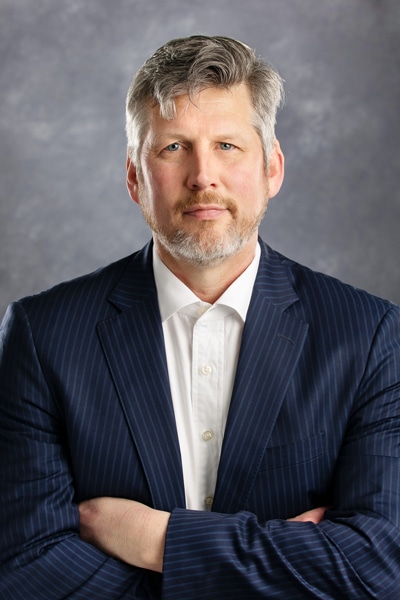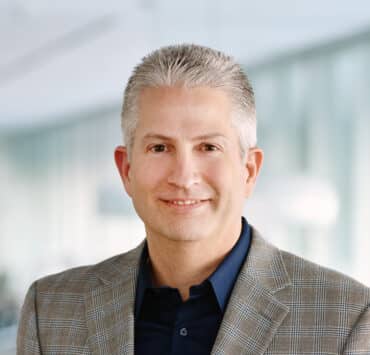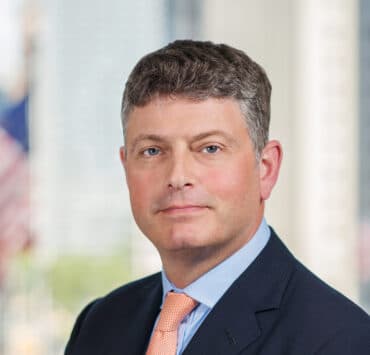|
Getting your Trinity Audio player ready...
|
Early into 2021, U. S. Steel completed its $774 million acquisition of Big River Steel (BRS), ushering in a new era for one of the most well-known steel producers in the country. The integration of BRS’s electric arc furnace (EAF) technology—more colloquially known as “mini mills”—along with U. S. Steel’s existing steelmaking assets, is seen by many as the future of steel production.
Whereas traditional steel production blends a litany of raw materials like coke, iron ore, limestone, and other alloys in a labor- and capital-intensive process, EAFs only require one main raw material: scrap steel. Instead of massive blast furnaces, scrap steel is reduced to liquid steel by means of electric charge. The process is much faster, easier to turn off and on, easier to maintain, requires less capital, and produces fewer emissions.
“It checks every available box,” says U. S. Steel Associate General Counsel Mark Furry. “It’s more environmentally friendly. It’s faster, and it’s cheaper. We think that soon we will be able to create the same grades of advanced high-strength steel that we make in our blast furnaces. It’s one of the biggest changes that’s occurred since I’ve been here.”

That’s no small chunk of time. Furry has called U. S. Steel home for twenty years. He progressed through increasingly complex roles in the legal department before being named to his current role, in which he manages a team of attorneys that provides M&A, capital markets, real estate, intellectual property, and commercial legal advice to the company. While it may seem a short stint for U. S. Steel’s 120-year history, a lot has evolved on the AGC’s watch.
“When I started here in 2000, I dictated absolutely everything into a handheld tape recorder,” Furry remembers, laughing. “Phone calls and in-person meetings were the way we handled most everything. Technology has just quickened the pace of transacting business for us and our decision-making.”
In an industry that may be as traditional as they come, Furry says the latest and greatest tech wasn’t always a huge point of focus for a company whose steel practices have remained in many ways the same for a hundred years. Under the leadership of U. S. Steel’s Senior Vice President, General Counsel, and Chief Ethics and Compliance Officer Duane Holloway, the department has embraced working remotely and plans to move to a more digitized approach to document retention and contract management.
As technological efficiencies have been implemented, the U. S. Steel legal team has contracted. It can create challenges. As a cost center, the legal team is constantly trying to reduce costs, including its outside counsel spend. “That means you have to bring in specialists as opposed to generalists,” Furry explains. “If I’m going to reduce my IP budget, I need to bring in an IP lawyer.”
But with in-house teams becoming ever-more specialized, there still has to be agility among U. S. Steel’s legal department. “You want to make sure that people don’t feel disconnected from the team, just working in their little niche,” Furry says. “I try to incorporate everyone in the bigger projects, so there are things we can all work on together. This can be difficult given the breadth of topics my team handles, but collaboration fosters camaraderie.”
The Big River Steel acquisition wasn’t just a “bigger project” for Furry. He says it’s perhaps the most sophisticated deal he’s been associated with in his tenure. Every member of his team played a role in the transformational transaction along with outside firm Milbank. “There were complexities that made this deal a little bit different than anything we’d ever done before,” Furry says.
For starters, the sellers ran the gamut from private equity to a teacher’s pension fund, along with a slew of other stakeholders. “You’re dealing with multiple owners and entities and attempting to ensure that everyone is getting what they want,” Furry explains.
The stakes were high. In essence, the deal would create a “best of both” integrated and mini mill steel company. The list of hundred-year-old companies is short enough, but ones who have successfully built out an entirely new business and reporting segment is even shorter.
“Our customers now have access to a truly sustainable source of the most advanced high strength steels,” U. S. Steel President and CEO David Burritt offered in a statement following the completion of the deal. “Our customer-centric organization will provide customers, employees, communities, and investors with the world competitive advantages from the most advanced process technology and the intellectual capital necessary to produce the most advanced products.”
With a landmark deal under his team’s belt, one that will literally shift the trajectory of a steel giant, it’s a good moment to ask Furry what has kept him successful for two decades. He’s seen a lot, including what he describes as a “Band Aid-rip” digital commitment to working from home resulting from the COVID-19 pandemic that has proven to be far more successful than anyone could have imagined.
“Everything here sounds like a cliché, but it’s true,” Furry begins. “Work hard. Treat people with respect, no matter what their role is. You cannot survive at one place for twenty years without adapting, but the key to productive longevity is adapting without relinquishing your core values. I’ve been fortunate to have been mentored by some great people who taught me these lessons and never forced me to compromise those values.”
Furry’s outside partners can attest to the growth they’ve seen in him throughout his career. “In 2001, Mark and I tried a complex five-week trial to conclusion and obtained verdicts in favor of U. S. Steel in all twenty-three of the lawsuits consolidated against the company,” says Paul Cavender, partner at Burr & Forman.
He continues, “Having shown his litigation ability, he then moved over to the corporate section of the law department and has successfully handled a wide variety of domestic and international corporate, trade, and transactional assignments, and responsibilities wherein he consistently advances the company’s interests. Mark’s professionalism, range of legal capabilities, and deep allegiance to U. S. Steel always impresses me and others at Burr Forman.”
Furry is preparing for an entirely different landmark moment, as of late. His kids will both be out of the house soon. It’s allowed him to grow a bit into his own home. Due to COVID he jokes that his free time is spent like a troglodyte, but post-COVID he hopes to travel with his wife without the tether of kids. Given Furry’s evolution over twenty years at U. S. Steel, he’s earned it.

